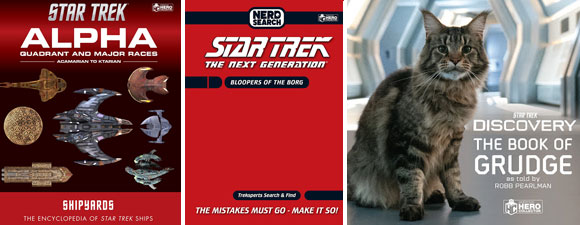Book Review: Star Trek: Crucible — Spock: The Fire and the Rose
3 min readWritten by David R. George III
Reviewed for TrekNation.com by Bill Williams
350 pages, MSRP &_#36;7.99
Date of publication: February 2007
Summary: In a single moment that stays with Spock, he preserved the timeline at the cost of Jim Kirk’s happiness. Now the death of that friend will cause Spock to reexamine the fundamental choices he has made for his own life. While his quest for the perfect geometry of total logic will move him beyond his remorse, another loss will bring him full circle to once more face the fire he has never embraced.Review: In “The City on the Edge of Forever”, the entire fate of the universe and future history was at stake. From there David R. George III extrapolated the after-effects of said events and crafted one of the most epic storylines in all of Star Trek literature, the Crucible trilogy. The first volume, McCoy: Provenance of Shadows, saw how Leonard McCoy’s involvement – or prevention, thereof – in preserving history affected every decision of his life both before and after the events of the episode. Now, George turns his attention to Spock and his seemingly never-ending struggle between his Vulcan and human heritages in The Fire and the Rose.
In this second volume, we first see Spock at the end of “Where No Man Has Gone Before”, torn between his cold logic and the respect and admiration he has for Captain Kirk in making the hard decisions that will define his command of the U.S.S. Enterprise. If only such decisions were as easy for Spock. As the months pass to their fateful encounter with the Guardian of Forever, Spock goes through his own personal anguish at watching Kirk lose the one great love of his life, Edith Keeler, in favor of saving the universe and future history.
This personal anguish ripples over the decades, as George intercuts the back story with present-day events at the end of the 23rd century. Spock, now a Federation ambassador, finds himself inexplicably drawn to Alexandra Tremontaine, an ambassador at odds with every single decision Spock makes in one treaty negotiation after another. These conflicts only draw Alexandra toward the unemotionally attached Spock in a romantic way, which Spock rebuffs. But with Kirk’s apparent death aboard the Enterprise-B, Spock now seeks to once again pursue the kohlinahr ritual of forsaking all emotions and becoming fully Vulcan. But what effect will this have on his life and his apparent attraction to Alexandra?
It’s not an easy road to hoe, as David George has shown us previously with the McCoy volume. Like Provenance of Shadows, George connects the dots throughout the entire history of the original series and the feature films to trace how one decision affects everyone’s lives now and for all time. For Spock, he returns to the most complex battle that became a recurring theme throughout the series and feature films, Spock’s continual struggle to reconcile his Vulcan logic and his human emotions. But it’s that return to the kohlinahr that seems to finally give Spock that impetus to become fully Vulcan. Yet we are reminded by his mother Amanda’s simple words as heard in “Journey to Babel”: “You’re half-human. It’s not an ugly thing.”
More than just encapsulating all of the Original Series moments into a single tale, George’s strength lies in the sheer humanity and scope of how one event has consequences both dire and miniscule that affect the characters beyond the context of the story. In Spock’s case, his cold logic in “City on the Edge of Forever”, reinforced by a single, quiet emotional acknowledgement, is enough to permeate his entire life. But is the logic enough for Spock to embrace the one element he repeatedly denies himself – love – and embrace his human side?
The Fire and the Rose leaves us with complex questions that make you wonder more about Spock’s duality. As the second chapter of a three-part saga, it’s electrifying. As a personal story, it’s filled with depth and wonder. It’s no wonder that Spock is still, after over 40 years, the most fascinating Vulcan in the entire history of the franchise.
Rating: 5/5 stars





